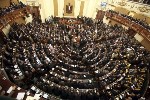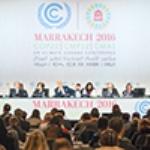Published on Fri, 2016-11-25 17:28
Following the adoption of the draconian associations law in Egypt, six Political parties and 22 civil society organizations issued a joint statement to condemn and reject the proposed law. The groups noted that the new law effectively eradicates civil society and defers its administration to the government and security apparatus. They condemned parliament’s treatment of civil society as an enemy to be defeated through secret laws. In the statement, they reiterated that the state has already taken real steps to eliminate Egyptian civil society organizations by prosecuting case no. 173/2011 on foreign funding, and several organizations and their current and former directors have been banned from travel and have had their assets frozen. This new law, however, would pave the way for the eradication of any sort of civic action geared to development, charitable activities, and services. The operation of local development associations throughout Egyptian villages and hamlets, which provide services to local residents, will become nearly impossible. |
Published on Fri, 2016-11-25 16:49
The Marrakech climate talks, which began on 7 November, closed on 19 November, with developing countries making a strong plea for pre-2020 climate action and for developed countries to fulfill their pre-2020 commitments. This call was made at the joint closing plenary of the twenty-second session of the Conference of the Parties (COP22), the twelfth session of the Conference of the Parties serving as the meeting of the Parties to the Kyoto Protocol (CMP 12) and the first part of the first session of the Conference of the Parties serving as meeting of the Parties to the Paris Agreement (CMA1). |
Published on Fri, 2016-11-25 16:13
In October the World Bank launched the first of what it says will be a series of annual reports on Poverty and Shared Prosperity, for tracking progress towards two key Sustainable Development Goals (SDGs): reducing extreme poverty and inequality. The theme of the first edition is “Taking on Inequality.” The report’s findings that “between 2008 and 2013, the number of countries experiencing declining inequality was twice the number exhibiting widening inequality” quickly made it onto the press. |
Published on Fri, 2016-11-18 14:49
Parties at the climate talks on 17 November supported the call issued by the President of the Conference of Parties to the UNFCCC entitled the ‘Marrakech Action Proclamation for our Climate and Sustainable Development'. The President of the 22nd meeting of the Conference of the Parties (COP22), who is also the Foreign Minister of Morocco, Salaheddine Mezouar, introduced the document to the plenary evening of 17 Nov. Describing it as a new source of inspiration, he said that the ‘proclamation' for our climate and sustainable development received the support of all Parties and invited Moroccan Ambassador Aziz Mekouar to read it out. |
Published on Fri, 2016-11-18 09:52
Also in Switzerland the "refugee crisis" is causing a stir. A few facts would be a useful input to this discussion. "No one leaves home and family just like that. You must be so desperate that you are not even fazed by the thought of drowning in the Mediterranean. What matters is that you have tried to find a better life elsewhere and to avoid turning to crime, despite adversity." |
SUSCRIBE TO OUR NEWSLETTER






